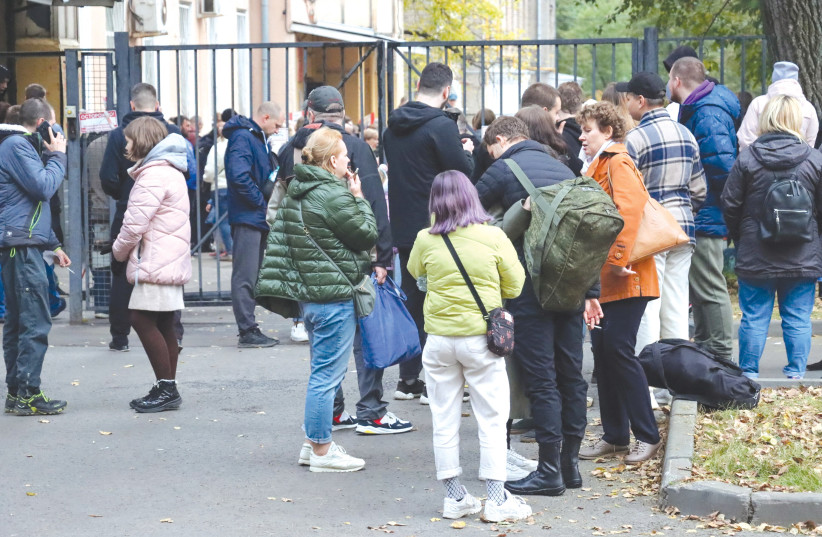Due to low morale and reluctance to fight in Ukraine, Russian forces have probably started deploying “barrier troops” or “blocking units” which threaten to shoot their own retreating soldiers in order to compel offensives and have been used in previous conflicts by Russian forces, according to a Friday morning intelligence update from the British Ministry of Defence.
Russian generals likely wanted their commanders to use weapons against deserters, stated the British Defence Ministry, including possibly authorizing shooting to kill deserters after giving a warning.
Friday's intelligence update also posited that Russian generals likely wanted to maintain defensive positions in Ukraine to the death. The tactic of shooting deserters likely attests to the low quality, low morale and indiscipline of Russian forces, according to the update.
Putin's partial mobilization and subsequent mass exodus

President Vladimir Putin announced a partial military mobilization of the Russian military reserves on Sept. 21, 2022, which he then declared complete on Oct. 28. Immediately following the mobilization announcement, tens of thousands of Russians fled — or attempted to flee — the country to escape the draft.
More than half of Russians were fearful or anxious about Putin's mobilization, according to a poll released by the independent Levada Center on Sept. 29, 2022, just over one week after the announcement.
Ill-equipped and poorly trained
Western and Ukrainian intelligence sources reported throughout September and October that Russian newly-mobilized Russian reservist troops were ill-equipped and poorly trained for combat.
In mid-October, the Russian news site Mediazona reported that "the officers of the military commissariats in Moscow came to charity centers that provide shelter and food to the needy and homeless, as well as hostels where migrant workers live, and forced them to enlist in the Russian army." This was most likely in an effort to reach the mobilization quota of 300,000 new troops.
However, new troops forced to serve in the military, whether they are poor, migrant workers or everyday Russian citizens, reportedly lack food, uniforms, money and places to sleep, according to a statement published by the Ukrainian Defense Ministry in early October.
